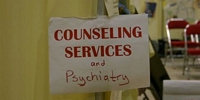An umbilical hernia is a protrusion of the gut under the skin of the navel. There are two very different forms in children and adults. In children, there is a hole between the muscle layers of the abdomen where the arteries and veins that passed down the umbilical cord from the mother entered the baby. This hole normally closes quickly after birth, but in some children the hole is very large, or is slow to close.
If however, these pediatric umbilical hernias are causing problems or enlarging, surgery can be recommended earlier. This decision for surgery should only be made after a comprehensive examination by a Pediatrician or skilled Surgeon.
Causes
As the fetus develops during pregnancy, there is a small opening in the abdominal muscles that allows the umbilical cord to pass through, connecting mother to baby. As the baby grows after birth, this opening in the abdominal muscles closes. Sometimes, however, these muscles do not meet and grow together completely, and a small opening remains. This opening is called an umbilical hernia.
Umbilical hernias are common in infants. They occur slightly more often in African Americans. Most umbilical hernias are not related to disease. However, umbilical hernias can be associated with rare conditions such as mucopolysaccharide storage diseases, Beckwith-Wiedemann syndrome, and Down syndrome.
Symptoms
Most children with umbilical hernias have no symptoms. The bulge becomes more prominent when the child strains or cries but usually causes no pain or discomfort to the child. Abdominal contents getting stuck in the hernia are very rare.
Treatments
Most umbilical hernias close on their own by age 1. The doctor may even be able to push the bulge back into the abdomen during a physical exam. During surgery, a small incision is made at the base of the bellybutton. The herniated tissue is returned to the abdominal cavity, and the opening in the abdominal wall is stitched closed. Most people are able to go home within a few hours after surgery and resume typical activities within two to four weeks. Recurrences are unlikely.
Most umbilical hernias close on their own without treatment by the time the child is age 4 or 5 years, and usually within the first year of life. Surgery typically is needed to repair an umbilical hernia that persists after age 4 or 5, because it is unlikely to close on its own. The likelihood that an umbilical hernia will heal on its own depends in part on how large it is.
When the orifice is small (



